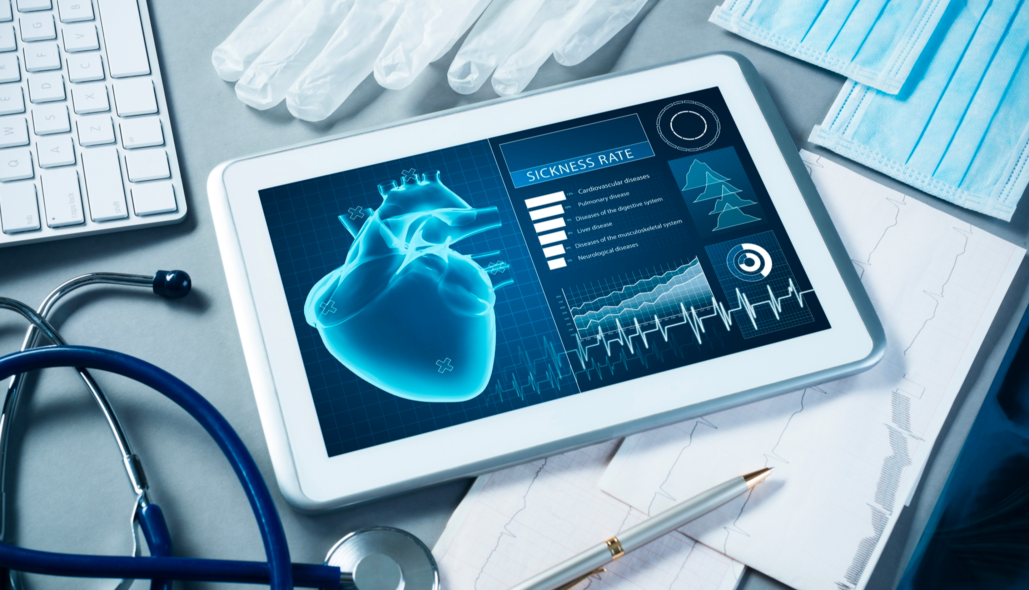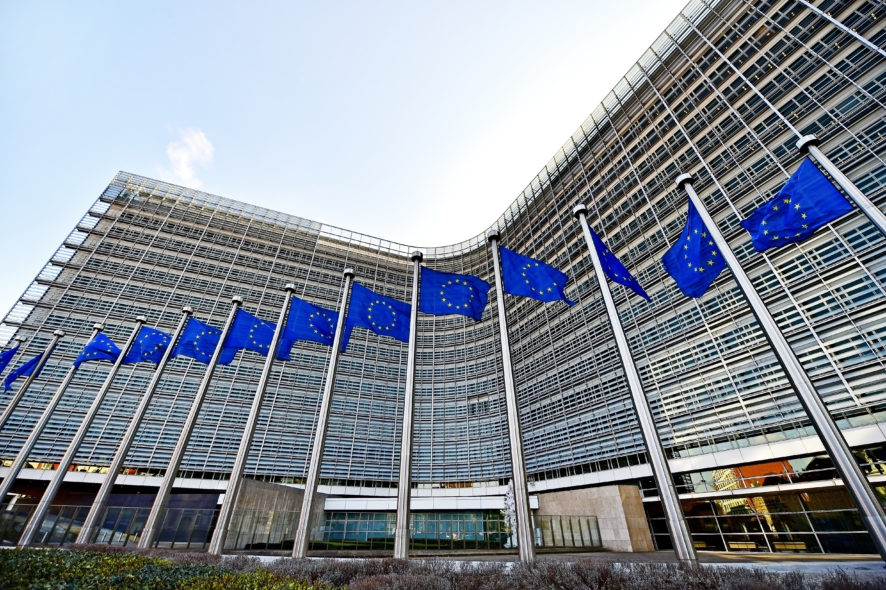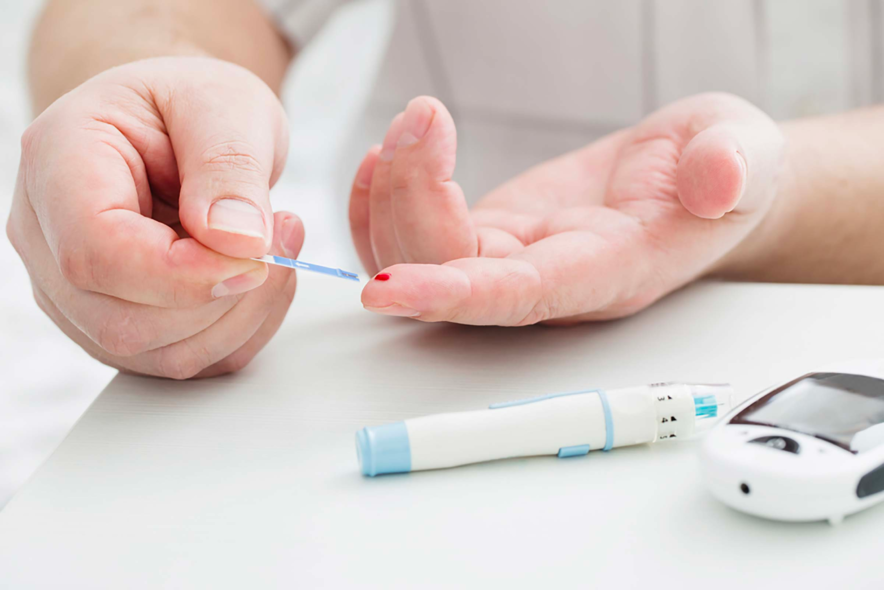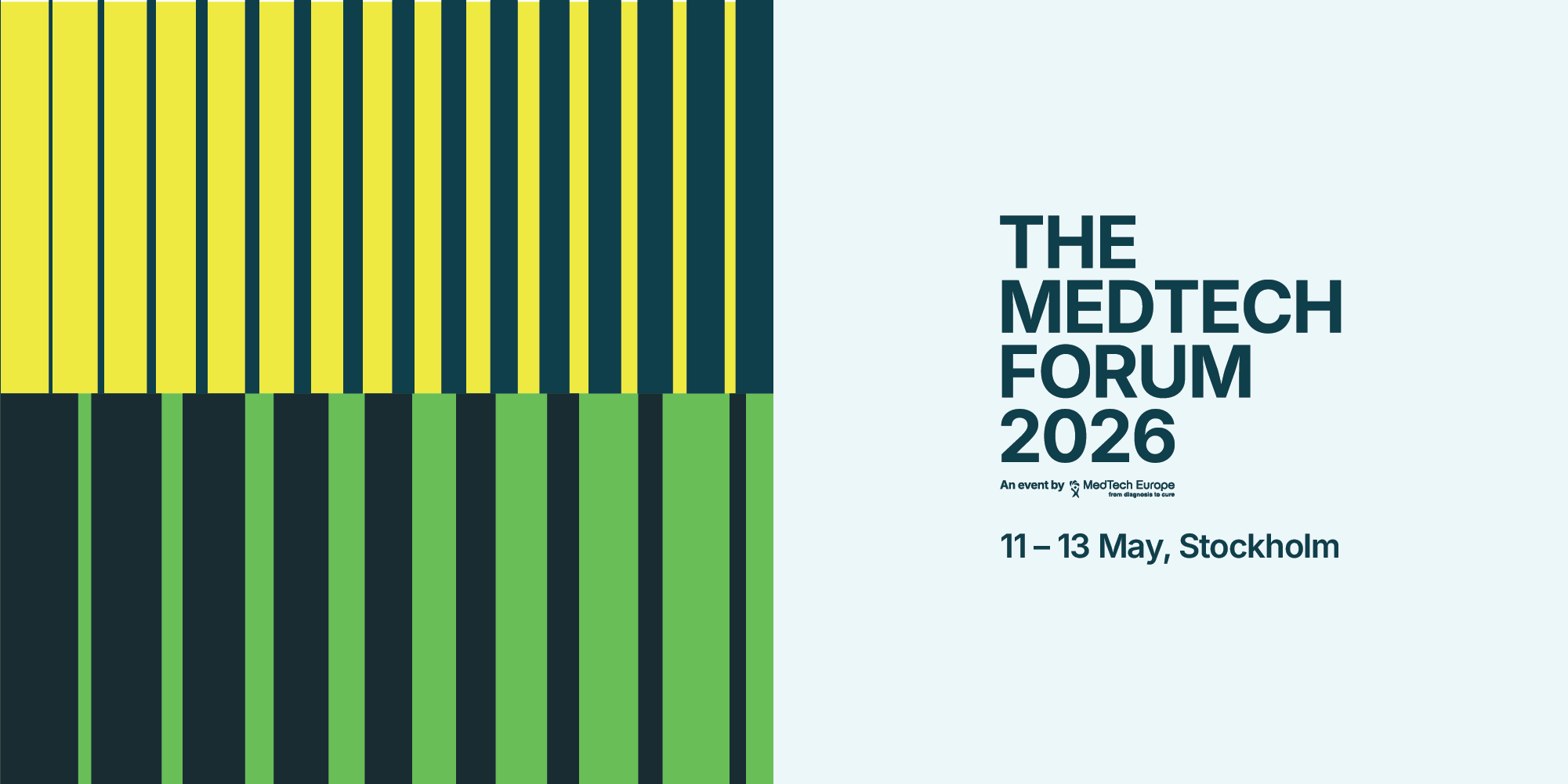Posted on 28.01.2026
Event report: 7th European Value-Based Procurement Conference
The seventh edition of the European Value-Based Procurement Conference, “Driving Value in Healthcare – Scaling Up Value-Based Procurement across Europe”, took place on 9 December 2025 in Brussels. The VBP Conference was organised by the Value-Based Procurement Community of Practice and supported by EHPPA, EUREGHA, EAVH, Swansea University / Prifysgol Abertawe and MedTech Europe. The post-conference report, which summarises some of the key themes addressed during the event, is now available. Read the full report below.
Posted on 15.01.2026
Safeguarding Intellectual Property and trade secrets in the European Health Data Space
The joint paper led by Digital Europe and endorsed by EFPIA, EUCOPE, COCIR and MedTech Europe highlights the need for clear and harmonised EHDS implementation guidelines on IP and trade secrets to ensure that innovation is protected while enabling responsible data use. It also calls for dedicated IP and trade secret task forces within HDABs, structured cooperation between health data holders and authorities, and robust safeguards throughout data sharing processes to maintain transparency and trust across the ecosystem. Read our joint paper below. For reference, this is DIGITALEUROPE’s landing page: Safeguarding intellectual property and trade secrets in the European Health Data Space – DIGITALEUROPE
About us
MedTech Europe is the European trade association representing the medical technology industries, from diagnosis to cure.
We represent Diagnostics and Medical Devices manufacturers operating in Europe. There are more than 2,000,000 products, services and solutions currently made available by the medical technology industry. These range from bandages, blood tests and hearing aids to cancer screening tests, pacemakers and glucose monitors.
Our sector employs more than 930,000 people. There are more than 38,000 medical technology companies in Europe, of which 90% are SMEs.

What we work on
ExploreSector Priorities
Interactions with the Medical Community
Interactions with the Medical Community
The medical technology industry is expected to act in a responsible manner. MedTech Europe and its members are committed to a high level of ethical business practices and have put in place strict guidelines to advise medical technology manufacturers on how to collaborate ethically with Healthcare Professionals (HCPs), Healthcare Organisations (HCOs) and Patient Organisations (POs).

Legal
Legal
In close collaboration with in-house counsels & privacy experts in member companies, MedTech Europe empowers its members to navigate the evolving legal landscape, ensuring they remain compliant while driving innovation in medical technology. On relevant topics, MedTech Europe also advocates for a balanced and predictable legal environment that ensures patient access to safe and innovative medical technologies.

Access to Medical Technology
Access to Medical Technology
Medical technologies have the potential to save and improve the quality of life, to inform people on the state of their health and to guide healthcare delivery.

Medical Technology Regulations
Medical Technology Regulations
Medical technologies are tightly regulated in the European Union. Before a medical technology can be legally placed on the EU market, a manufacturer must comply with the requirements of all applicable EU legislation and affix a CE mark to their device.
EU Regulations governing medical devices (MD) and in vitro diagnostic medical devices (IVD) were published in May 2017. MedTech Europe is working with our members and the authorities to support companies in complying with the legislation by the end of the extended transition periods.

Competitiveness
Competitiveness
European medical technology industry's vibrant research ecosystem contributes to innovation while fostering a resilient, competitive and future-ready Europe. Medical technology is one of Europe’s most dynamic, and innovative sectors, delivering world-class solutions for patients and health systems in Europe while supporting local economies.

Digital Health
Digital Health
Medical technologies are transforming the way healthcare works for all of us. From faster diagnoses to remote monitoring, digital health contributes to smarter, safer, and more connected care.

International
International
MedTech Europe engages with global agencies, decision-makers and stakeholders on key international issues facing medical technology companies.

Sustainability and Environment
Sustainability and Environment
In addition to the medical technology sector’s core goal of saving lives and improving health, environmental and social considerations are an integral part of our industry’s operations. We acknowledge that preserving a healthy environment and building socially responsible value chains are essential in keeping human beings in good health. Our industry needs to be at the forefront of addressing challenges related to sustainable healthcare.

Market Data
Market Data
Taking decisions based on individual knowledge and market understanding has proven to be insufficient in the digital era. Successful medical technology companies have leveraged the power of technology and big data to take rigorous decisions based on empirical data. Staying up to date with the latest trends requires a trusted data provider and market intelligence service.

Research and Innovation
Research and Innovation
Research & Innovation (R&I) is the lifeblood of Europe’s medical technology sector. Industry investment in R&I delivers life-enhancing devices, diagnostics, and digital solutions. The European Union’s support for R&I offers valuable opportunities for academia and industry to generate new knowledge and use it to tackle the biggest challenges facing our societies. The quest for tomorrow’s healthcare innovations demands new, broad partnerships. R&I is most impactful when it is based on collaboration. MedTech Europe is committed to working with others in the public and private sectors to find solutions to our challenges.

Innovative Health Initiative (IHI)
Innovative Health Initiative (IHI)
The Innovative Health Initiative (IHI) is a public-private partnership between the European Union and the European life science industries, under the EU R&I funding programme Horizon Europe. IHI was launched in 2021 and will run until 2027.

Sector Groups
Cancer
Cancer
Medical technologies play an essential role throughout the whole cancer continuum: they help prevent and detect cancer at early stages, treat patients and prevent treatment complications, as well as improve the quality of life of cancer patients and survivors.

Diabetes
Diabetes
Diabetes is a silent pandemic. There are 60 million people across Europe living with the condition—equivalent to the population of Italy – and the numbers are rising each year. If current trends continue, diabetes will soon be the number one health threat in Europe.
The MedTech Europe Diabetes Group aims to reverse this trend by taking meaningful collective action on prevention, diagnosis and treatment for the millions of people living with diabetes, so that they can get back to leading full and fear-free lives.

Antimicrobial Resistance (AMR) and Healthcare Associated Infections (HAIS)
Antimicrobial Resistance (AMR) and Healthcare Associated Infections (HAIS)
Antimicrobial Resistance (AMR) and Healthcare Associated Infections (HAI) are among the biggest global public health challenges of our time. These infections cause significant morbidity and mortality, put pressure on health systems, and incur rising direct and indirect costs.
Medical technologies can help to address these problems by preventing, detecting, monitoring and managing infections and resistance.

Cardiovascular
Cardiovascular
Cardiovascular diseases, including heart failure, atrial fibrillation-related stroke, heart valve disease or coronary heart disease, can impact people of all ages and remain the leading cause of death in the European Union.
The medical technology industry provides high-quality solutions to safeguard and promote cardiovascular health and reduce the burden of cardiovascular diseases on individuals, families, and the wider society.

Orthopaedic
Orthopaedic
Orthopaedics is the medical specialty that focuses on injuries and diseases of the human body's musculoskeletal system. This complex system includes bones; joints; ligaments; tendons; muscles; and nerves; and allows you to move, work, and stay active.
The medical technology industry develops products that reduce the burden of musculoskeletal diseases on individuals, families, and the wider economy. These innovations improve quality of life and add enormous value to the European society.

A place for dialogue about medical technologies
Explore












